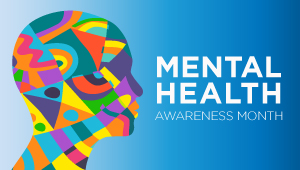Gregory E. Simon, MD, MPH
Biography
Greg Simon, MD, MPH, is a psychiatrist and senior investigator well-known for his extensive research on practical approaches to improving mental health care. He seeks to develop and evaluate effective real-world strategies that support better mental health and wellness. Current areas of emphasis include identifying and assessing suicide risk, improving care for treatment-resistant depression, and early intervention for mental health conditions in children and youth.
Dr. Simon leads the Mental Health Research Network (MHRN), a consortium of research centers affiliated with 13 large health systems across the United States, including Kaiser Permanente Washington. This network, funded through a cooperative agreement with the National Institute of Mental Health, aims to improve the efficiency, relevance, and impact of mental health clinical and health services research. Now in its second five-year funding cycle, the MHRN is exploring a broad range of issues—including suicide prevention, improving heart health in people with serious mental illness, using electronic medical records to improve follow-up care for depression, and understanding the causes of racial and ethnic disparities in mental health care.
Dr. Simon and his MHRN colleagues are conducting several large studies across MHRN health systems, including:
- A pragmatic trial in four health systems examining the effect of systematic outreach programs to prevent suicide attempt among people at high risk.
- Using electronic health records from seven health systems to develop and validate machine learning models to identify people at high risk of suicidal behavior.
- A pragmatic trial in two health systems evaluating electronic health record tools to reduce risk of cardiovascular disease in people with bipolar disorder and schizophrenia.
- A rigorous evaluation of Zero Suicide care improvement programs in six health systems
- Developing measures to assess quality of care for depression in two health systems.
Dr. Simon is an editor for the Cochrane Collaboration’s depression and anxiety review group, sits on the editorial board for General Hospital Psychiatry, and serves on the advisory board for the National Institutes of Health’s All of Us Program (formerly Precision Medicine Initiative). Earlier, he served on the editorial boards of Psychiatric Services and Psychological Medicine and chaired the scientific advisory board for the Depression and Bipolar Support Alliance. Dr. Simon has practiced adult psychiatry in Kaiser Permanente Washington's Mental Health and Wellness Service since 1990 and is a research professor in psychiatry and behavioral sciences at the University of Washington.
Research interests and experience
-
Mental Health
Depression; bipolar disorder; suicide prevention; self-management; treatment adherence
-
Chronic Illness Management
Comorbidity of mental health conditions with obesity, diabetes, heart disease, and substance use disorders.
Recent publications
Cruz M, Shortreed SM, Richards JE, Coley RY, Yarborough BJ, Walker RL, Johnson E, Ahmedani BK, Rossom R, Coleman KJ, Boggs JM, Beck AL, Simon GE. Machine learning prediction of suicide risk does not identify patients without traditional risk factors. J Clin Psychiatry. 2022 Aug 31;83(5):21m14178. doi: 10.4088/JCP.21m14178. PubMed
Simon GE, Shortreed SM, Boggs JM, Clarke GN, Rossom RC, Richards JE, Beck A, Ahmedani BK, Coleman KJ, Bhakta B, Stewart CC, Sterling S, Schoenbaum M, Coley RY, Stone M, Mosholder AD, Yaseen ZS. Accuracy of ICD-10-CM encounter diagnoses from health records for identifying self-harm events. J Am Med Inform Assoc. 2022 Aug 26:ocac144. doi: 10.1093/jamia/ocac144. [Epub ahead of print]. PubMed
Ahmedani BK, Cannella CE, Yeh HH, Westphal J, Simon GE, Beck A, Rossom RC, Lynch FL, Lu CY, Owen-Smith AA, Sala-Hamrick KJ, Frank C, Akinyemi E, Beebani G, Busuito C, Boggs JM, Daida YG, Waring S, Gui H, Levin AM. Detecting and distinguishing indicators of risk for suicide using clinical records. Transl Psychiatry. 2022 Jul 13;12(1):280. doi: 10.1038/s41398-022-02051-4. PubMed
Simon GE, Richards JE, Boggs JM. Effect of care management or online dialectical behavior therapy skills training vs usual care on self-harm among adults with suicidal ideation-reply. JAMA. 2022 Jun 14;327(22):2246-2247. doi: 10.1001/jama.2022.5883. PubMed
Boggs JM, Simon GE, Beck A, Rossom RC, Lynch FL, Lu CY, Owen-Smith AA, Waring SC, Ahmedani BK. Are people who die by intentional medication poisoning dispensed those medications in the year prior to death? Arch Suicide Res. 2022 May 17:1-8. doi: 10.1080/13811118.2022.2072253. [Epub ahead of print]. PubMed
Rossom RC, Penfold RB, Owen-Smith AA, Simon GE, Ahmedani BK. Suicide deaths before and during the coronavirus disease 2019 pandemic: an interrupted time-series study. Med Care. 2022 May 1;60(5):357-360. doi: 10.1097/MLR.0000000000001700. PubMed
Shaw JL, Beans JA, Noonan C, Smith JJ, Mosley M, Lillie KM, Avey JP, Ziebell R, Simon G. Validating a predictive algorithm for suicide risk with Alaska Native populations. Suicide Life Threat Behav. 2022 Aug;52(4):696-704. doi: 10.1111/sltb.12853. Epub 2022 Mar 15. PubMed
Yarborough BJH, Stumbo SP, Rosales AG, Ahmedani BK, Boggs JM, Daida YG, Negriff S, Rossom RC, Simon G, Perrin NA. Opioid-related variables did not improve suicide risk prediction models in samples with mental health diagnoses. J Affect Disord Rep. 2022 Apr;8:100346. doi: 10.1016/j.jadr.2022.100346. Epub 2022 Mar 30. PubMed
Simon GE, Shortreed SM, Rossom RC, Beck A, Clarke GN, Whiteside U, Richards JE, Penfold RB, Boggs JM, Smith J. Effect of offering care management or online dialectical behavior therapy skills training vs usual care on self-harm among adult outpatients with suicidal ideation: a randomized clinical trial. JAMA. 2022;327(7):630-638. doi: 10.1001/jama.2022.0423. PubMed
Richards JE, Boggs JM, Rowhani-Rahbar A, Kuo E, Betz ME, Bobb JF, Simon GE. Patient-reported firearm access prior to suicide death. JAMA Netw Open. 2022 Jan 4;5(1):e2142204. doi: 10.1001/jamanetworkopen.2021.42204. PubMed
Research

Understanding adoption of Lock to Live, a decision aid supporting suicide prevention
KPWHRI research finds ways to increase use of a firearm safety tool.
Research

A medication that can relieve symptoms of psychosis is underused
Study finds that many patients who might benefit from clozapine don’t receive it.
Research

Improving and advancing mental health care
KPWHRI researchers are contributing to better mental health care for people nationwide.
New findings

Simpler models to identify suicide risk perform similarly to more complex ones
Models that are easier to explain, use could have better uptake in health care settings.
Research

Asking about firearm access can normalize and support dialogue for patients
Findings provide roadmap for addressing barriers and improving suicide prevention.



